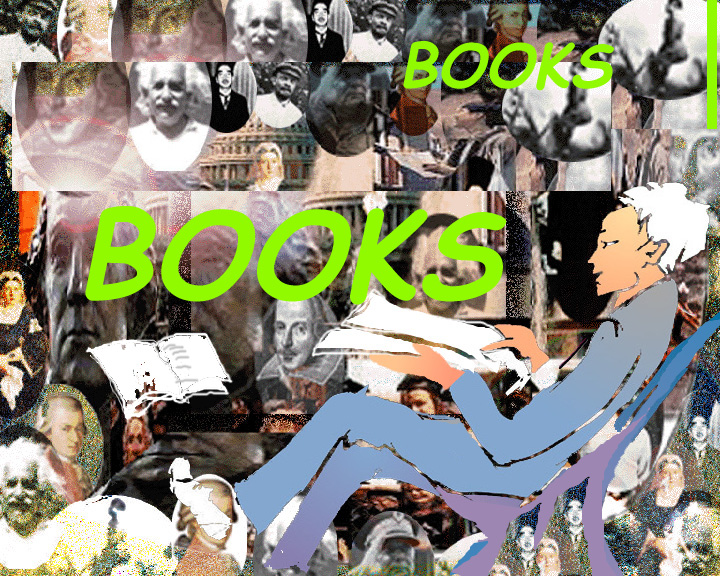Trivial and Serious
Pursuits
ALTERNATIVE
HISTORY
is finding where we are in time and space
to try to understand
what happens and how and why,
how humans behave generally and how they could behave.
It is learning about consequences and possibilities.
It is the narrative that we are programmed to love, and to tell
down the ages.
It is the detective story that can never be completely solved, but
intrigues
with its puzzles, its discipline and its frustrations.
It is the pursuit of truth that is the never-ending story.
Australian History or the History of any nation
must be about the history of the whole world
or it is parochial
No child should leave primary school
without a time-line and a world map in their head
Every primary classroom should have on the wall
a time-line and a map to place everything that is studied
Historical information useful only for
answering multiple-choice quizzes interests the
intellectually curious. But wider historical knowledge is needed to
ensure that school-leaves can have a job, can learn from how real
people in the past have lived together rather than only from TV
entertainment or current fashions, and can have a fuller life as a
contributing citizen in this time of critical decisions about
leaders, economics and the future.
Learning from history
PROBLEM
Why isn't Alternativ History the history that is read in schools
today?
Because there are always temptations to make history
boring.
Other sorts of histories are often taught in schools.
'GEOGRAPHY IS ABOUT MAPS,
HISTORY IS ABOUT CHAPS' describes one interesting sort
of history for children, apart from leaving out half the human
race.
'HISTORY IS WHAT YOU CAN
REMEMBER', as Sellars & Yeatman's definition, is at
least brief.
History as DATES AND BATTLES AND
KINGS to be learnt by heart did give a framework of
time passing, but nothing within the framework.
History as SOCIAL HISTORY OF 'THE
PEOPLE' without real individual human life was worthy
not doubt but very dull until one reaches the age that one does
start to wonder about what the world was like without
toothbrushes.
History as 'TRANSECTS' and
'MODULES' and
'THEMES' which is the modern
idea of history in schools is ideal for Edbiz special kits and CDs
and 'other learning materials and activities' but the student ends
up a collection of quilt patches but not enough for even one
coherent bedspread, and no framework to sew them into.
History as TRAINING LITTLE
PROFESSIONAL HISTORIANS means 'activities' in which
students are given say two items of information from archeological
or other primary data, and are then asked to make sweeping general
conclusions about what that society was like.
THE STUDY OF HISTORY IN
PRIMARY AND
SECONDARY SCHOOLS
The study of history in schools today has suffered
fragmentation,
loss of interest in knowledge,
disbelief in the pursuit of truth,
devaluation of memory, decline of humanism,
antipathy to class teaching as 'authoritarian'
and lack of teacher skills to hold a class by teaching, and
defects in teacher training
'holistic' ideals that dispute the practical compartmentalisation
of knowledge into subjects to make it teachable, but make the
problem worse by resort to isolated 'modules',
blinkered utilitarian values held by bureaucrats,
changes in class organisation,
poor reading skills of students,
short attention spans,
deteriorating quality of textbooks,
the proliferation of blackline masters and excessive reliance upon
their transitory value.
In the past, history has often been an unpopular subject, because
of
a) the ways it has been taught, and
b) the needed qualities of students who enjoy it.
the ways history has been
taught,
History as dates and battles and kings.
History as social history of 'the people' without human life.
History as 'transects' and 'modules'.
History taught by reading from textbooks and examined on memory of
dates and 'facts'.
The qualities of students who enjoy
the study of history: -
- a love of reading and story, verbal abilities, imagination ('the
ability to consider what may be possible, in real life, not only
in fantasy'), early access to fascinating books, early glimpse of
the scope and inspiration of history - eg. through
Arthur Mee's Children's
Encyclopedia,1 Time
Friezes, books that covered a whole period, historical
fiction - brilliant teachers, and school textbooks that are
well-written and illustrated.
Not many students today are equipped with even a few of these
advantages.
History is the daughter of
Time, where everything has beginnings and probable
endings - a sustained narrative sequence. Dipping a toe into a
rock pool arouses questions about the ocean.
History has always been linked with memory and with
records.Ý Without memory, no 'fact' can be understood.
History should be an illumination of the mind, not a burden on
the memory (Lord Acton)
1 Arthur
Mee presented an idealistic Glorious Martyrs view of
history, rather than a Black Armband, and his enthusiasm counted
for more than the jingoism, belief in progress and excessive
sorting of sheep and goats.Ý He glorified the achievements
of all races and of women also, despite his excessive pride in his
own Englishmen. He wrote for children as children, not adults, but
children who are intelligent and curious, and able to share his
delights, and indeed, he was able to do this without any
patronising because he was like a grown-up child himself. And the
illustrations were romantic and exciting and aroused imagination
and idealism.

Back to Ozideas Home Page
|

